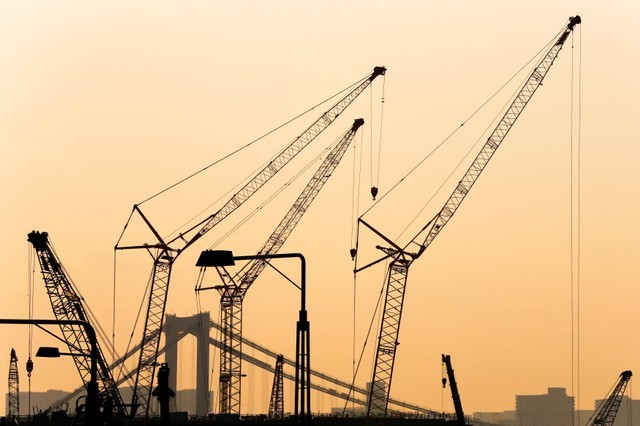By Stanley White
TOKYO (Reuters) - Japan's core machinery orders tumbled in June at the fastest pace in six months, with firms expecting another modest drop in the third quarter in a sign capital expenditure may slow, especially as international trade worries cloud the horizon.
The 8.8 percent fall in core machinery orders, a highly volatile data series regarded as a leading indicator of capital spending, was more than the median estimate for a 1.3 percent decline in a Reuters poll and marked the biggest drop since December 2017.
Manufacturers surveyed by the Cabinet Office have forecast that core orders will edge down 0.3 percent in July-September after a 2.2 percent increase in April-June.
The machinery orders, which come a day before data expected to show the economy resumed expansion in the second quarter due to robust consumer spending and capital expenditure, may increase policymaker concerns about future growth.
"Machinery orders are moving in line with a temporary slowdown in global manufacturing activity," said Hiroaki Muto, an economist at Tokai Tokyo Research Center.
"Japan's economy will continue to grow but at a slightly slower pace. Trade friction is a risk, but there is no substantial impact so far."
By sector, orders from manufacturers slumped by 15.9 percent in June, after a 1.3 percent increase in May, while service-sector orders decreased 7.0 percent, versus a 0.2 percent increase the previous month.
The Cabinet Office lowered its assessment of machinery orders, saying a recovery in orders has paused.
Gross domestic product (GDP) is expected to have expanded at an annualized rate of 1.4 percent in the second quarter, the Reuters poll of 16 analysts showed.
That would translate to a 0.3 percent expansion in April-June from the previous quarter.
In January-March, the economy shrank at an annualized rate of 0.6 percent, marking the end to eight straight quarters of growth.
Risks to the outlook remain as U.S. President Donald Trump's protectionist trade policies and his threats to impose tariffs on imported autos and auto parts cloud the prospect for Japan's export-reliant economy.

Japanese companies could cut back on capital expenditure if they think exports will slow due to trade friction with the United States, some economists have said.